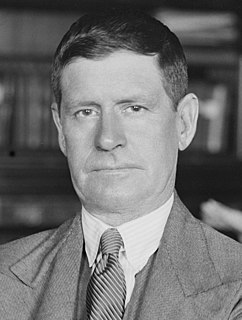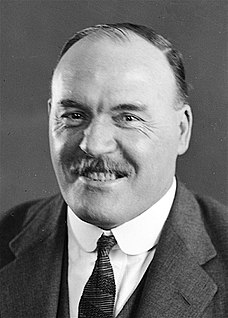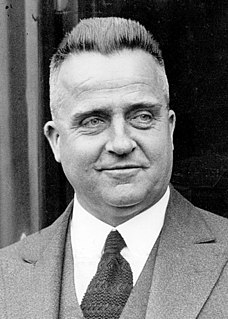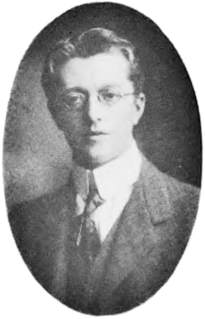Related Research Articles

Sir Billy Mackie Snedden, was an Australian politician who served as the leader of the Liberal Party from 1972 to 1975. He was also a cabinet minister from 1964 to 1972, and Speaker of the House of Representatives from 1976 to 1983.

William Charles Wentworth, usually known as Bill Wentworth and sometimes referred to by others as William Charles Wentworth IV, was an Australian politician. He was a member of the Liberal Party for most of his career and held ministerial office in the governments of John Gorton and William McMahon, serving as Minister for Social Services (1968–1972) and Minister in charge of Aboriginal Affairs (1968–1971). Wentworth served in the House of Representatives from 1949 to 1977, representing the New South Wales seat of Mackellar. He frequently crossed the floor and served his final months in parliament as an independent.

William Robert Nuttall Maloney was an Australian doctor and politician. He was a member of parliament for over 50 years, beginning his career in the Victorian Legislative Assembly as the member for the seat of West Melbourne (1889–1903). He was elected to the federal House of Representatives at the 1904 Melbourne by-election, representing the Australian Labor Party (ALP). He held the seat until his death in 1940 at the age of 86, the sixth-longest period of service in federal parliament and the longest period of service as a backbencher.
The Electoral district of Brown Hill-Ivanhoe was a Legislative Assembly electorate in the state of Western Australia. It covered part of the Goldfields city of Boulder, near Kalgoorlie, and neighbouring mining areas. It was created at the 1911 redistribution out of the former seats of Brown Hill and Ivanhoe, and was first contested at the 1911 election. It was abolished in the 1948 redistribution, with its area split between the neighbouring electorates of Boulder and Hannans, taking effect from the 1950 election. The seat was a very safe one for the Labor Party.

Albert Redvers George Hawke was the 18th Premier of Western Australia. He served from 23 February 1953 to 2 April 1959, and represented the Labor Party.

Philip Collier was an Australian politician who served as the 14th Premier of Western Australia from 1924 to 1930 and from 1933 to 1936. He was leader of the Labor Party from 1917 to 1936, and is Western Australia's longest-serving premier from that party.

Charles McDonald was an Australian politician who served in the House of Representatives from 1901 until his death, representing the Labor Party. He was Speaker of the House of Representatives from 1910 to 1913 and from 1914 to 1917. Before entering federal politics, McDonald had served in the Queensland Legislative Assembly from 1893 to 1901.

Patrick Joseph Lynch was an Australian politician who served as a Senator for Western Australia from 1907 to 1938. He was President of the Senate from 1932 to 1938. He began his career in the Australian Labor Party (ALP), but after the party split of 1916 joined the Nationalist Party and later the United Australia Party (UAP).
This is a list of members of the Western Australian Legislative Assembly between the 1947 election and the 1950 election, together known as the 19th Parliament.

The 1927 New South Wales state election to elect the 90 members of the 28th Legislative Assembly was held on 8 October 1927. During the previous parliament the voting system, which had been a form of proportional representation with multi-member seats and a single transferable vote, was changed to single member constituencies with optional preferential voting. Severe divisions occurred within the Labor Party caucus in the four months prior to the election and a caretaker government composed of the supporters of the Premier of New South Wales and party leader, Jack Lang was in power at the time of the election.

The 1930 New South Wales state election was held on 25 October 1930. The election was conducted in single member constituencies with compulsory preferential voting. The election occurred at the height of the Great Depression and was a landslide victory for the expansionary monetary policies of Jack Lang.

The 1935 New South Wales state election was held on 11 May 1935. This election was for all of the 90 seats in the 31st New South Wales Legislative Assembly and was conducted in single member constituencies with compulsory preferential voting.

John Henry Cann was a New South Wales politician, Treasurer, and Minister of the Crown in the cabinets of James McGowen and William Holman.
A by-election was held for the New South Wales Legislative Assembly seat of Neutral Bay on Saturday 15 December 1945. It was triggered by the death of the Leader of the New South Wales Liberal Party and Leader of the Opposition, Reginald Weaver, who died a week after suffering a mild heart attack in the Legislative Assembly chamber.
The Askin–Cutler ministry (1968–1969) or Second Askin ministry was the 63rd ministry of the New South Wales Government, and was led by the 32nd Premier, Bob Askin, of the Liberal Party in coalition with the Country Party, led by Charles Cutler. It was the second of six occasions when Askin was Premier; and when Cutler was Deputy Premier.

Matthew Charlton was an Australian politician who served as leader of the Australian Labor Party (ALP) and Leader of the Opposition from 1922 to 1928. He led the party to defeat at the 1922 and 1925 federal elections.

Sir Walter Dwyer was an Australian lawyer, politician, and judge. He was a member of the Legislative Assembly of Western Australia from 1911 to 1914, and later serving as the presiding judge on the State Court of Arbitration from 1926 to 1945.
Cecil Thompson "Charlie" Oliver AM was an Australian trade unionist and politician. He was a Labor Party member of the Legislative Assembly of Western Australia from 1948 to 1951, representing the seat of Boulder, and was later prominent in the labour movement in New South Wales as the state secretary (1951–1978) and state president (1980–1985) of the Australian Workers' Union.
John Denis Teahan was an Australian politician who served as a Labor Party member of the Legislative Council of Western Australia from 1954 to 1965, representing North-East Province.
A by-election for the seat of Balcatta in the Legislative Assembly of Western Australia was held on 28 July 1973. It was triggered by the resignation of Herb Graham, the deputy premier in the Labor government of John Tonkin, on 30 May 1973.
References
- ↑ Philip Collier, Biographical Register of Members of the Parliament of Western Australia. Retrieved 22 January 2017.
- ↑ Black, David; Prescott, Valerie (1997). Election statistics, Legislative Assembly of Western Australia, 1890-1996. Perth, Western Australia: Parliamentary History Project and Western Australian Electoral Commission. p. 36. ISBN 0-7309-8409-5.
- ↑ Knowles, Harry (2012). "Oliver, Cecil Thompson (Charlie) (1901–1990)". Australian Dictionary of Biography . Vol. 18. Melbourne University Press. ISSN 1833-7538 – via National Centre of Biography, Australian National University.
- ↑ John Denis Teahan, Biographical Register of Members of the Parliament of Western Australia. Retrieved 22 January 2017.
- ↑ Schedvin, Bernie (2012). "Snedden, Sir Billy Mackie (1926–1987)". Australian Dictionary of Biography . Vol. 18. Melbourne University Press. ISSN 1833-7538 – via National Centre of Biography, Australian National University.